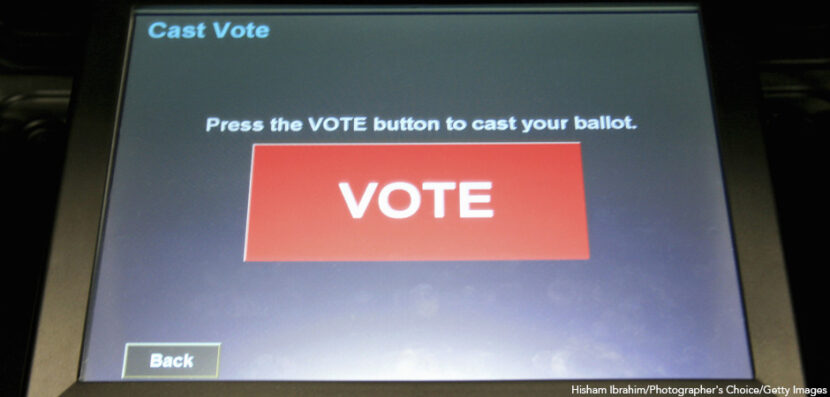More and More LGBTQ Candidates in the Midterm Elections
Harvey Milk was one of the first openly LGBTQ people to be elected to public office in the United States. Milk was elected to the San Francisco Board of Supervisors in 1977. In 2009, he was posthumously (after his death) awarded the Presidential Medal of Freedom by the Obama administration. In the forty-five years since Milk was elected, more and more LGBTQ candidates have run for public office. Here, Election Central takes a closer look at this development and at what it might mean for American politics in the future.
The Changing Face of Government
At least 678 LGBTQ candidates are expected to appear on General Election ballots this year, in all fifty U.S. states (plus the District of Columbia). That’s an increase of more than 18 percent since 2020. These numbers include ten candidates who identify as transgender, doubling the number of trans candidates from 2020.
Currently, there are only nine openly LGBTQ members of the House of Representatives, and two openly LGBTQ senators. But that seems set to change. This election cycle, more than one hundred openly LGBTQ candidates ran primary campaigns for Congress. That’s 16 percent more than the number who ran in the 2020 election; in fact, it’s a new record. In 2020, ten openly LGBTQ candidates for Congress were up for election. But this year, there will be thirty-six. The trend of increasing numbers of LGBTQ candidates continues at the state and local levels as well.
Meet the Candidates
Odessa Kelly is a Democrat running for Congress in Tennessee’s 7th District. If she wins in November, she will become the first African American, openly LGBTQ woman ever to be elected to Congress. Meanwhile, in Vermont, mother of two Becca Balint is running for Congress as well. Balint has served in the Vermont state senate since 2017. Most recently she was the president pro tempore of the Vermont Senate. If she wins, she will become both the first woman and the first openly LGBTQ person from Vermont to hold congressional office. Far from hiding her identity, Balint featured her wife and their two children in her first campaign ad. She is running against Liam Madden, who won the Republican primary but is identifying as an independent. Ericka Redic is also running to represent the Libertarian Party.
In North Carolina, Jasmine Beach-Ferrara—another mother—will become the first woman and first openly LGBTQ member of Congress from that state if she wins in November. She has served as a county commissioner, as an ordained minister, and was the Executive Director for the Campaign for Southern Equality organization. While Beach-Ferrara admits that people are interested in her identity as a gay woman, she says this is not the reason she’s running. Instead, she emphasizes her willingness to work hard for the people of North Carolina, who she says are tired of political divisiveness. She is being challenged by Republican Chuck Edwards. Edwards is appealing to Republican voters by supporting the Second Amendment, opposing relaxations in immigration laws, and supporting the Supreme Courts negation of the Roe v. Wade ruling.
Why It Matters
Representation is always important. Having openly LGBTQ representatives means that issues facing the LGBTQ community are more likely to be heard. Seeing LGBTQ people in public offices helps break down stereotypes. It means that more LGBTQ youth may be encouraged to run for public office in the future. Meanwhile, with LGBTQ voters quickly becoming one of the fastest-growing voting blocs in the country, it’s likely that we will be seeing more and more LGBTQ Americans in public office in the future.



